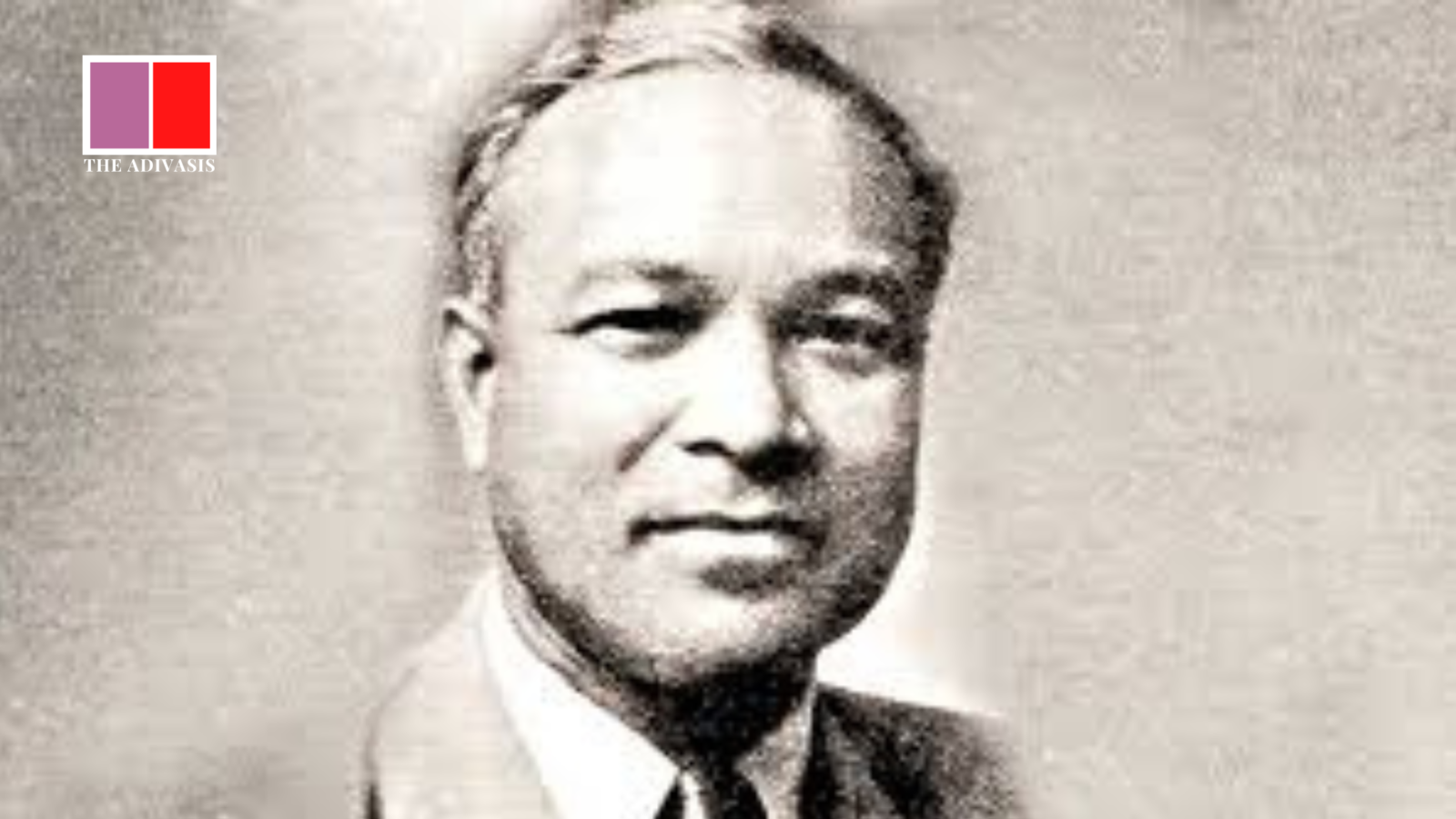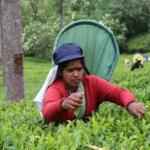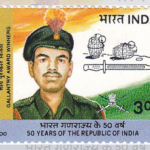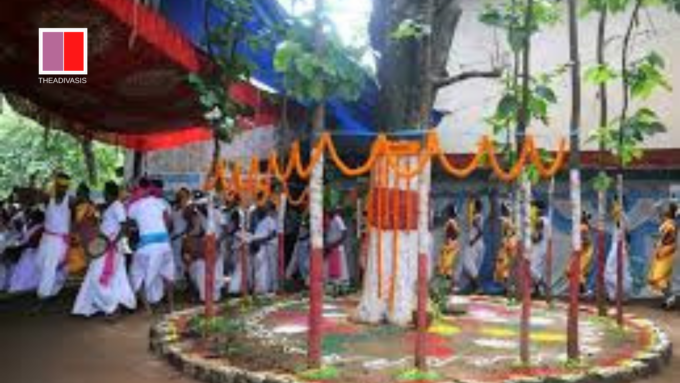From Hockey Fields to Parliament: The Inspiring Journey of Jaipal Singh Munda

Jaipal Singh Munda was born on 3 January 1903 in Takra Pahantoli, a small village in the Khunti district of present-day Jharkhand, India. He belonged to the Munda tribe, one of the prominent Adivasi (tribal) communities in the Chotanagpur region. His family was not wealthy, but they valued education. Jaipal showed exceptional intelligence and leadership qualities from a young age.
He started his schooling at St. Paul’s School in Ranchi, where his talent in sports, especially hockey, began to shine. Recognizing his potential, he received a scholarship to study further in England. He attended St. John’s College at the University of Oxford, where he studied economics and became one of the first Indian Adivasis to study abroad. At Oxford, Jaipal not only excelled academically but also became a star player in both football and hockey. He was also active in the Debating Society, which helped him develop his communication and leadership skills.
Sporting Achievements
Jaipal Singh Munda is best remembered in Indian sports history for his role as the captain of the Indian hockey team at the 1928 Amsterdam Olympics. Under his leadership, the team won its first-ever Olympic gold medal in hockey, marking the beginning of India’s dominance in the sport. Although he did not play in the final match, his contribution as captain was crucial in organizing and inspiring the team. He also played a key role in organizing the first Indian hockey team to tour Belgium while studying in Europe.
His success in sports brought pride not just to his community but to the entire nation. Jaipal Singh Munda became a symbol of excellence and determination, showing that people from marginalized communities could achieve great things on the world stage.
Career in Administration and Education
After his return from England, Jaipal Singh Munda was selected for the Indian Civil Service (ICS), a prestigious position at the time. However, his passion for sports and his commitment to his people led him to take different paths. He worked as a teacher at the Prince of Wales College in Achimota, Gold Coast (now Ghana), and later became the Principal of Rajkumar College in Raipur. He also served as the foreign secretary in the princely state of Bikaner.
Despite his success, Jaipal Singh Munda felt a strong urge to work for the upliftment of the Adivasi people. He wrote letters to leaders like Rajendra Prasad, seeking opportunities to contribute to education in Bihar, but did not receive positive responses. Eventually, he decided to enter politics to fight for the rights of his community.
Entry into Politics and Advocacy for Adivasi Rights
Jaipal Singh Munda’s political journey began in earnest when he became the president of the Adivasi Mahasabha in 1939. The organization aimed to unite the tribal people and advocate for their rights. Jaipal was a strong voice against the exploitation of Adivasis by the Bihar government and demanded a separate province for them, similar to the demands made by other linguistic and cultural groups in India.
He argued that Adivasis were the original inhabitants of India and deserved recognition and protection. He was against the policy of “Biharisation” of Chotanagpur, which he believed threatened Adivasi culture and identity. Jaipal Singh Munda’s leadership led to significant successes in local elections, which surprised the ruling government of Bihar.
During World War II, he cooperated with the British government to gain certain concessions for the Adivasi people and even tried to form alliances with other political groups to strengthen the movement for tribal rights.
Role in the Constituent Assembly
One of Jaipal Singh Munda’s most important contributions was as a member of the Constituent Assembly of India, which was responsible for drafting the Indian Constitution after independence. He was elected as an independent candidate from Bihar in 1946. In the Assembly, he was a passionate advocate for Adivasi rights. He argued for special provisions to protect the interests of tribal communities, including reservations in education and government jobs.
Jaipal Singh Munda often disagreed with other leaders, including Dr. B.R. Ambedkar, on issues related to the classification and treatment of tribal people. He opposed the use of the term “Scheduled Tribes,” fearing that it would exclude many genuine tribal groups. He insisted that Adivasis should be recognized as the true sons of the soil and their unique cultures should be preserved and respected.
His speeches in the Constituent Assembly are remembered for their clarity, conviction, and deep understanding of the issues facing tribal communities. He played a key role in ensuring that the Constitution included safeguards for Adivasis, such as reservations and the protection of their land and culture.
Formation of the Jharkhand Party and Later Political Career
After independence, Jaipal Singh Munda transformed the Adivasi Mahasabha into the Jharkhand Party, which aimed to create a separate state for the tribal regions of South Bihar (now Jharkhand). The party also welcomed non-tribal people to build a broader movement for statehood and social justice. In the first general elections of independent India, he won the Ranchi (West) seat with a large majority, and the Jharkhand Party became the main opposition in the Bihar Legislative Assembly.
In 1955, the party submitted a memorandum to the States Reorganization Commission, demanding a separate Jharkhand state. However, the proposal was rejected due to the region’s linguistic diversity, the minority status of the tribal population, and concerns about economic viability. Despite this setback, Jaipal Singh Munda continued to fight for the cause.
Over time, the popularity of the Jharkhand Party declined, and in 1963, Jaipal Singh Munda merged it with the Indian National Congress. Not all members agreed with this decision, but Jaipal believed it was the best way to continue working for Adivasi welfare. He remained a Member of Parliament until his death in 1970, representing the Khunti constituency.
Personal Life and Legacy
Jaipal Singh Munda was married twice, first to Tara Wienfried Majumdar, and later to Jahanara Jeyaratnam. Despite facing many challenges, he remained committed to his people and his principles throughout his life.
He is fondly remembered by the Adivasi people as “Marang Gomke,” meaning “Great Leader” in the local language. His life and work have inspired generations of activists and leaders fighting for social justice and the rights of marginalized communities.
Jaipal Singh Munda’s legacy is multifaceted. He is celebrated as a sports hero who brought glory to India, a visionary leader who fought for the rights of Adivasis, and a key figure in the making of modern India’s Constitution. His efforts laid the foundation for the eventual creation of the state of Jharkhand in 2000, long after his death.
Conclusion
Jaipal Singh Munda’s life story is one of courage, determination, and service. He broke barriers in sports, education, and politics, always striving to uplift his community and the nation. His vision of equality, justice, and dignity for all continues to guide India’s journey towards a more inclusive society. Jaipal Singh Munda remains a shining example of what one person can achieve with dedication and a sense of purpose.
Explore more
Tocklai Tea Research Center launches New Healthy Green Tea Powder with 75% Less Caffeine
The Tea Research Association (TRA) Tocklai in Assam has launched a special new green...
Assam Tea Workers Celebrate 20% Durga Puja Bonus from 7 Major Tea Estates
Breaking News: Tea workers across Assam have significant cause for celebration as 90...
Karam Festival: A Celebration of Nature, Harvest, and Tribal Heritage
The Karam Festival, also known as Karma Puja, is one of India’s most...
Assam Tea Industry in Distress: ITA Calls for Immediate Intervention
The Assam tea industry, which accounts for over 50% of India’s total tea...
![Best of The Adivasis [NE]](https://theadivasis.in/wp-content/uploads/2024/07/For-Dark-1-e1726799349438.png)
![Best of The Adivasis [NE]](https://theadivasis.in/wp-content/uploads/2024/07/For-Dark-e1726799204209.png)












Leave a comment